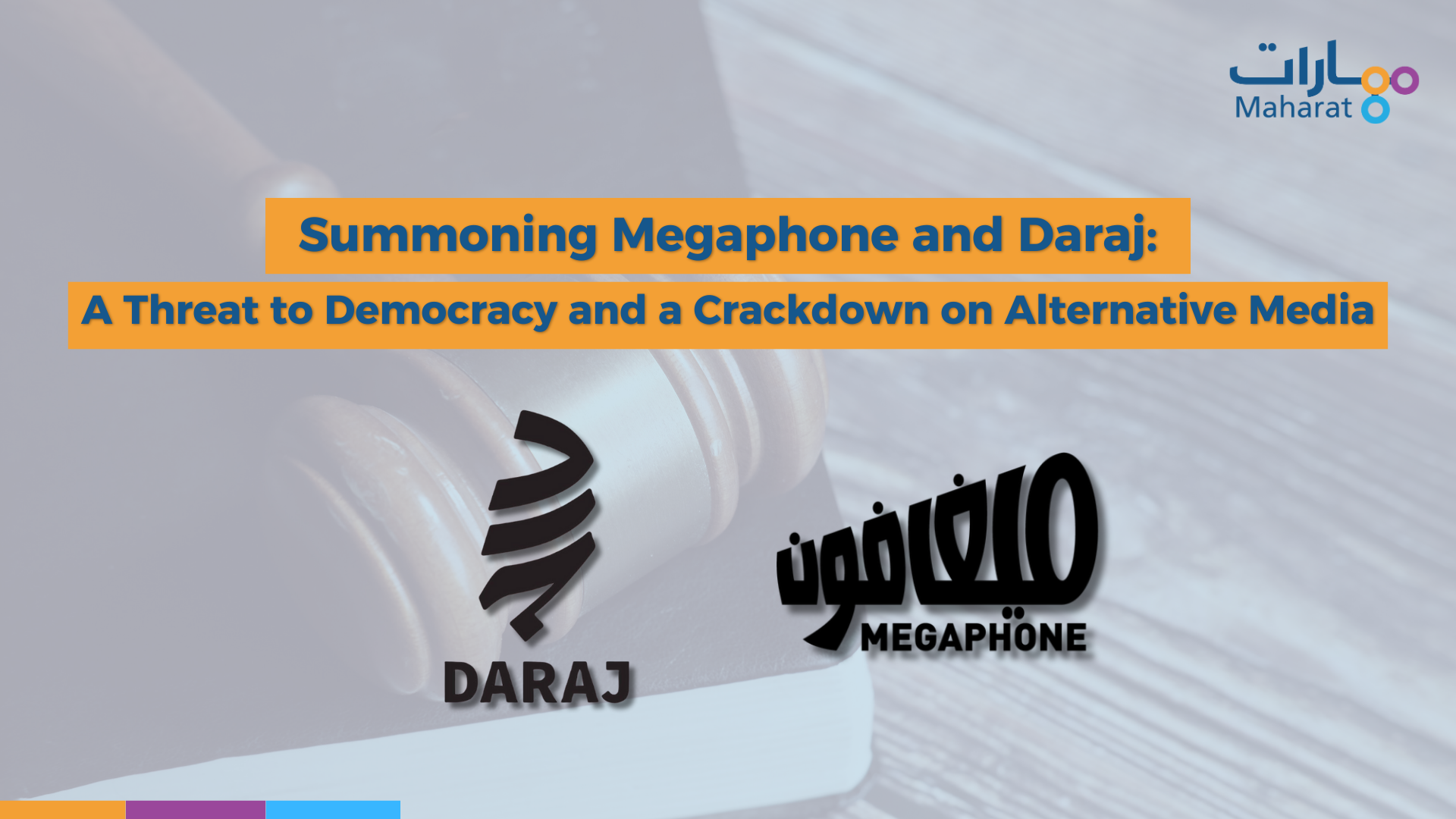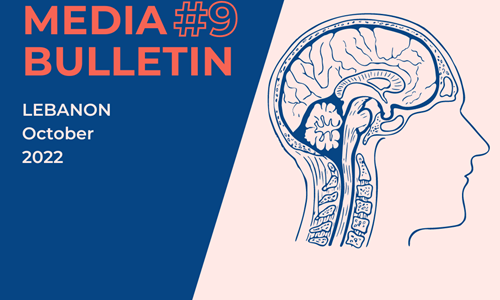
Summoning Megaphone and Daraj: A Threat to Democracy and a Crackdown on Alternative Media
📍 What happened:
Alternative media platforms Megaphone and Daraj were summoned to appear before the Court of Cassation’s Public Prosecutor tomorrow, Tuesday 15th of April, for an interrogation of their executive directors and editors-in-chief.
The summons was made by phone, with no official reason given — a violation of Article 147 of the Code of Criminal Procedure and the Lebanese Publications Law, which prohibits summoning journalists over their professional media work.
📢 What’s worse:
The news of the summons was leaked to the media before the journalists themselves were informed. It included vague and sweeping accusations such as:
- “Undermining the state’s financial position”
- “Destabilizing monetary stability”
- “Receiving foreign funding in exchange for these actions”
⚠️ Why it matters:
Criminal prosecution of journalists for their work poses a direct threat to freedom of expression and the public’s right to know.
Charges like “defaming the state” or “harming the economy” are increasingly being used as legal weapons against independent journalism — even when the reporting serves the public interest.
💬 What Maharat is saying:
“In a time of rising populism and polarization, alternative media represents the frontline of accountability, rights, and transparency. Targeting it is targeting the public’s right to truth.”
Maharat Foundation emphasizes:
- Supporting and preserving independent media is urgent and essential.
- Independent media outlets are part of Lebanon’s diverse media landscape, long celebrated and protected by the Constitution.
- The new media law must abolish criminal liability in expression-related cases and shift to civil accountability — especially to protect investigative journalists.
“Supporting alternative and independent media in these critical times is not only a media necessity — it is a democratic and human rights imperative.”
🧠 Alternative Media in Lebanon: A Non-Traditional Role
📊 What the numbers say — based on Maharat’s research:
🔎 Bold Coverage and Strong Investigative Reporting
- According to the studies "Media Trends in Times of Change" and "Security Coverage Monitoring", alternative media in Lebanon produces a higher proportion of in-depth reports on corruption compared to traditional media. This kind of investigative reporting appears especially vital during Lebanon’s current transitional period. Maharat’s 2024 study on financial transparency coverage in traditional media revealed that investigative reports are almost entirely absent on television (0%) and make up only 9% of newspaper content, with 90% of the reports relying on anonymous sources.
- It refuses to provide platforms to religious figures and security institutions, and instead adopts bold, rights-based, and critical approaches in its coverage of security and human rights issues.
👥 A platform for marginalized voices:
- Women and minority communities feature more prominently.
- These platforms give more space to activists and citizens, unlike traditional media that amplifies official voices.
🤝 Public trust: Still growing
- A 2021 media and information assessment showed 47% of respondents familiar with alternative media trust it.
- However, concerns remain about elitism and limited reach beyond major cities.
- Still, some platforms are seen as relatively independent and trustworthy.
📱 A new shape for journalism:
⚙️ Easy access and high engagement
- A 2020 Maharat study on alternative media platforms in Lebanon found users prefer alternative platforms because of:
- Easy mobile access
- Content that aligns with their interests
- These outlets rely on video, infographics, and interaction — moving away from rigid traditional formats.
🗳️ During elections: A space for change and the marginalized
📂 In Maharat’s 2022 legislative elections media monitoring report:
- 45% of alternative media coverage was dedicated to the elections.
- It reported on violations (16.6%), provided systematic critique (13.6%), and supported change movements (14%).
- Alternative media also gave space to issues such as diaspora voting, accountability for the Beirut port explosion, and the representation of female candidates.
🌍 Environmental and human rights coverage:
- Monitoring of environmental issue coverage revealed that alternative media treated environmental degradation as a core issue.
- As for human rights, alternative media demonstrated a firm stance in exposing the practices of security agencies, according to the 2023 study on security media.





